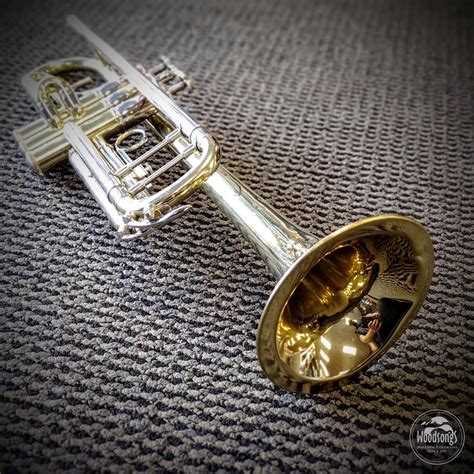Buying a used Bach trumpet in fair condition can be a great way to own a high-quality instrument without breaking the bank. However, it's essential to approach the purchase with caution and careful consideration to ensure you get the best value for your money. Here are five tips to help you navigate the process:
Whether you're a seasoned musician or a beginner, owning a good trumpet is essential for producing excellent sound quality. Bach trumpets are renowned for their rich, full-bodied tone and are a popular choice among musicians. However, a new Bach trumpet can be quite expensive, which is why buying a used one in fair condition is an attractive option.
First and foremost, it's crucial to set a budget before starting your search for a used Bach trumpet. Decide how much you're willing to spend, and stick to it. Keep in mind that a fair-condition trumpet will likely have some signs of wear and tear, so be prepared to compromise on cosmetic issues.

Tip 1: Research and Understand the Market
Before buying a used Bach trumpet, research the market to determine a fair price range. Look for similar models and their prices on online marketplaces, music stores, and forums. This will give you a better understanding of what to expect and help you make an informed decision.
Consider factors such as the trumpet's age, condition, and any customizations or upgrades. Additionally, be aware of the prices of new Bach trumpets to ensure you're not overpaying for a used one.

Tip 2: Inspect the Trumpet Thoroughly
When inspecting a used Bach trumpet, look for any signs of damage or wear. Check the instrument's body, valves, and mouthpiece for any dents, scratches, or corrosion. Make sure all the valves are working properly and that the mouthpiece is not damaged.
Also, inspect the trumpet's lacquer finish and look for any signs of repair or restoration. A well-maintained trumpet will have a smooth, even finish, while a neglected one may have a rough, worn-out appearance.

Tip 3: Check the Trumpet's History
It's essential to know the history of the trumpet you're interested in buying. Ask the seller about the instrument's previous owners, maintenance records, and any repairs or customizations made.
A trumpet with a clear history and maintenance records is more likely to be in good condition. Be wary of sellers who are unwilling to provide information about the trumpet's past or seem evasive about its condition.

Tip 4: Play the Trumpet Before Buying
If possible, play the trumpet before buying it. This will give you a sense of how the instrument sounds and feels. Pay attention to the trumpet's pitch, tone, and playability.
A good trumpet should have a clear, rich tone and be easy to play. If the trumpet sounds dull or is difficult to play, it may be a sign of a problem.

Tip 5: Get a Professional Inspection
Finally, consider getting a professional inspection before buying a used Bach trumpet. A professional trumpet technician can inspect the instrument and provide a detailed report on its condition.
This can be especially helpful if you're not familiar with trumpets or are unsure about the instrument's condition. A professional inspection can give you peace of mind and help you make a more informed decision.

By following these tips, you can find a high-quality used Bach trumpet in fair condition that meets your needs and budget. Remember to research the market, inspect the trumpet thoroughly, check its history, play it before buying, and consider getting a professional inspection.





What is the best way to clean a Bach trumpet?
+The best way to clean a Bach trumpet is to use a soft, dry cloth to wipe down the instrument after each use. For more thorough cleaning, use a trumpet cleaning kit and follow the manufacturer's instructions.
How often should I oil my Bach trumpet?
+It's recommended to oil your Bach trumpet every 1-2 weeks, depending on how often you play it. Use a high-quality trumpet oil and follow the manufacturer's instructions.
Can I use a Bach trumpet mouthpiece on a different trumpet?
+It's possible to use a Bach trumpet mouthpiece on a different trumpet, but it's not recommended. Bach mouthpieces are designed to work specifically with Bach trumpets, and using one on a different trumpet may affect the sound quality.
